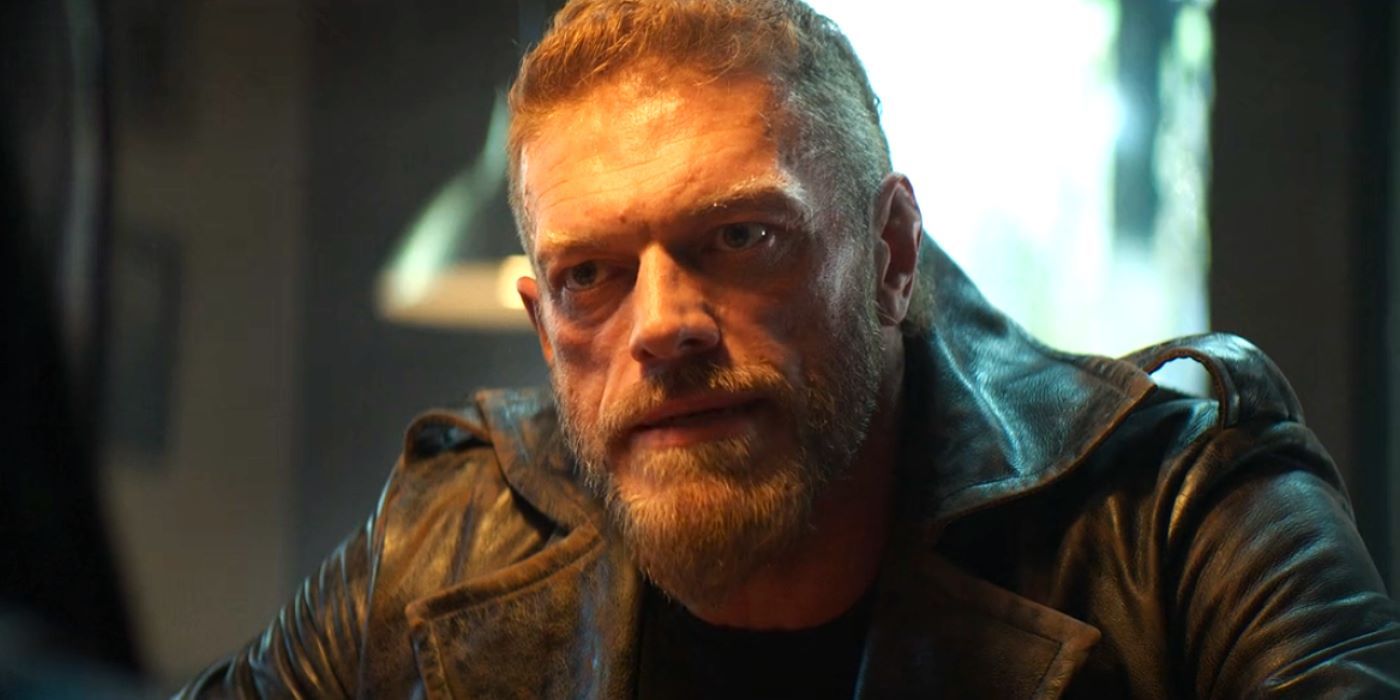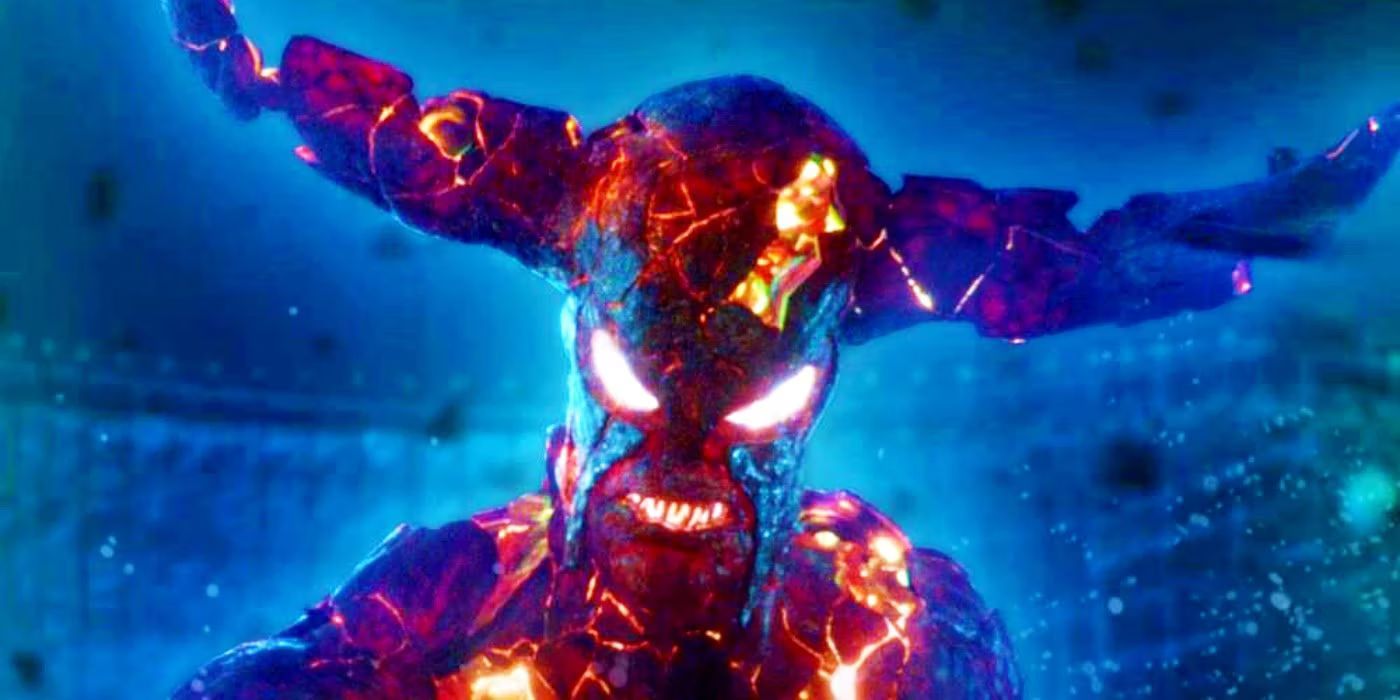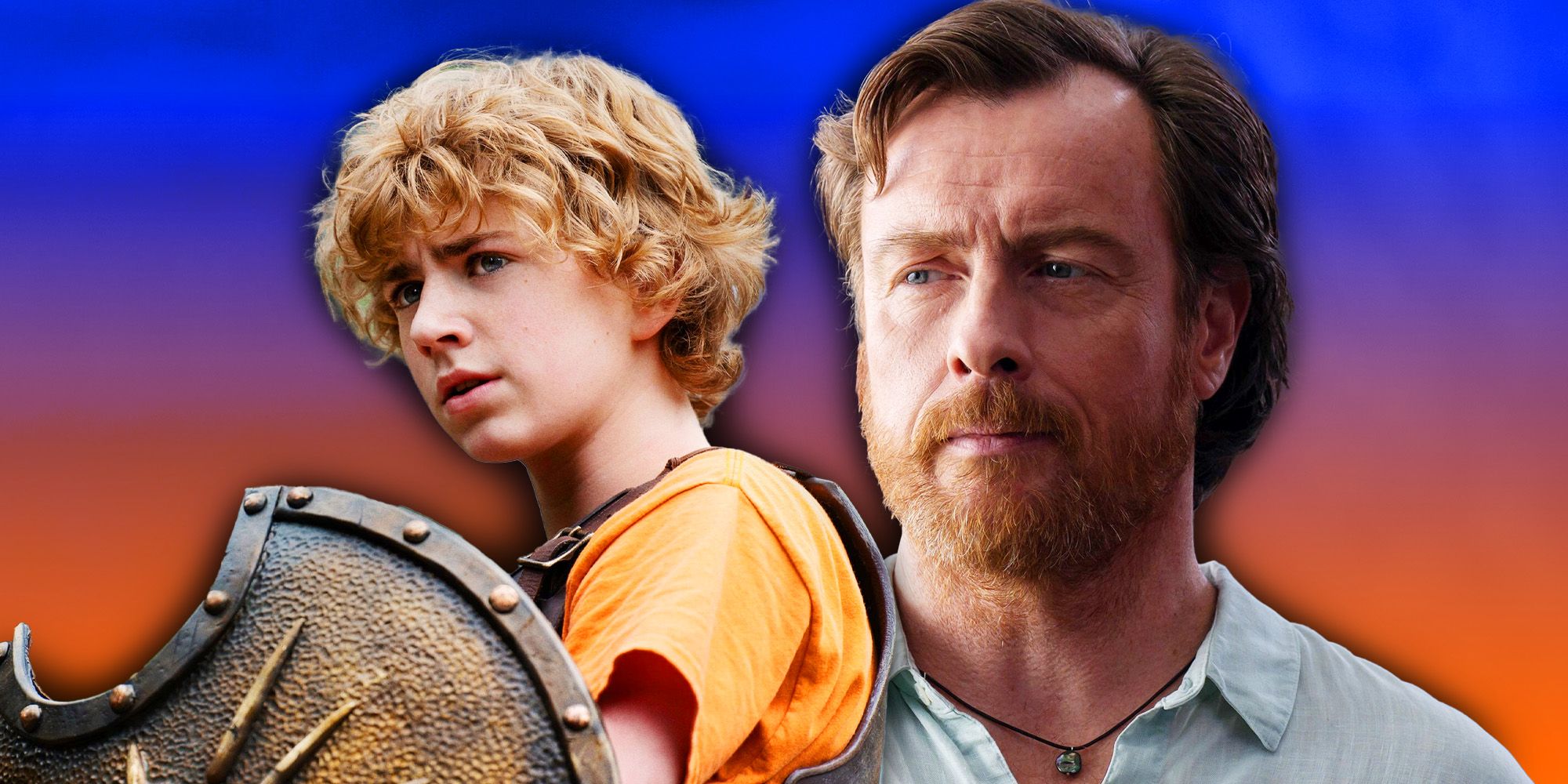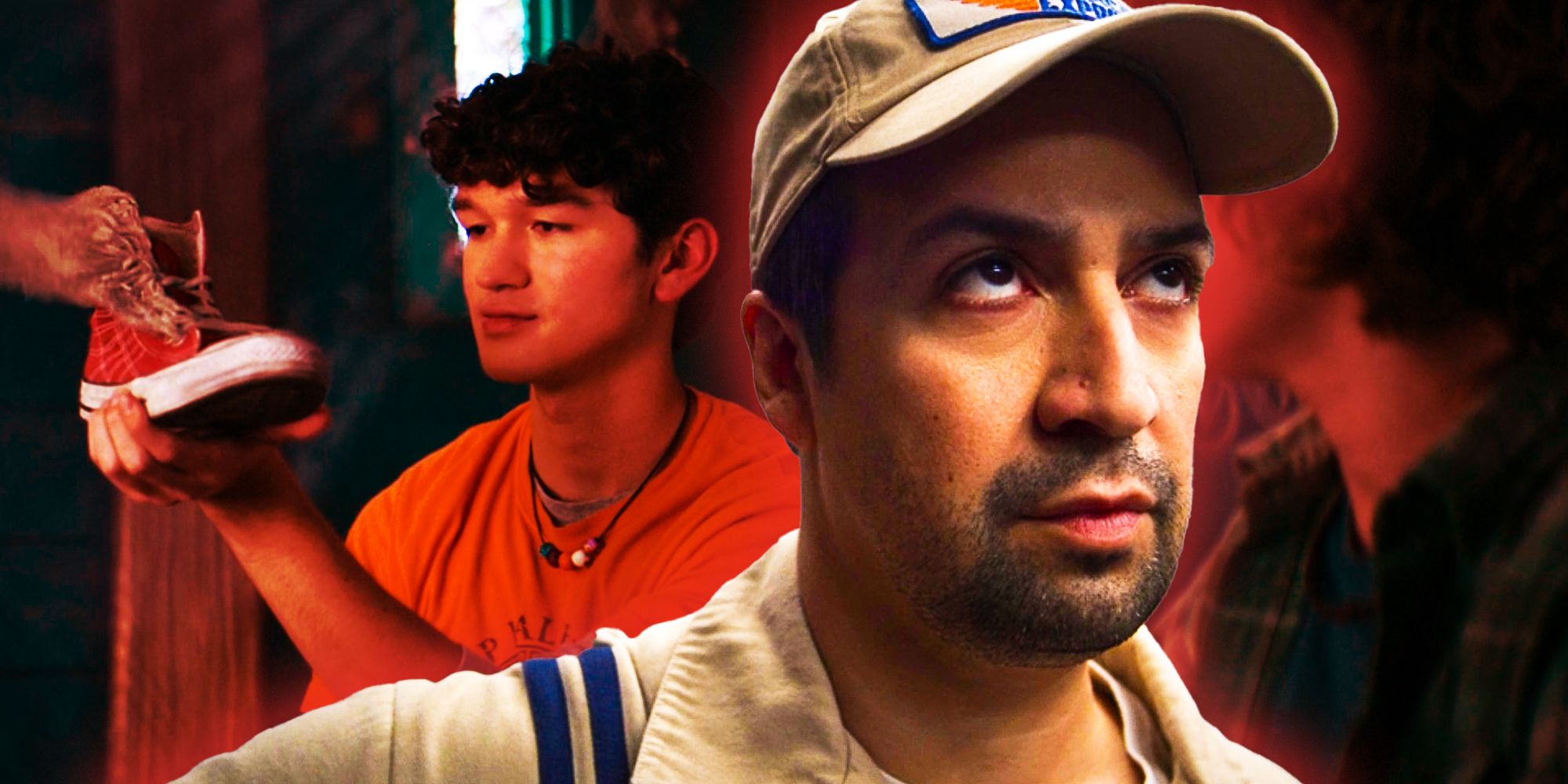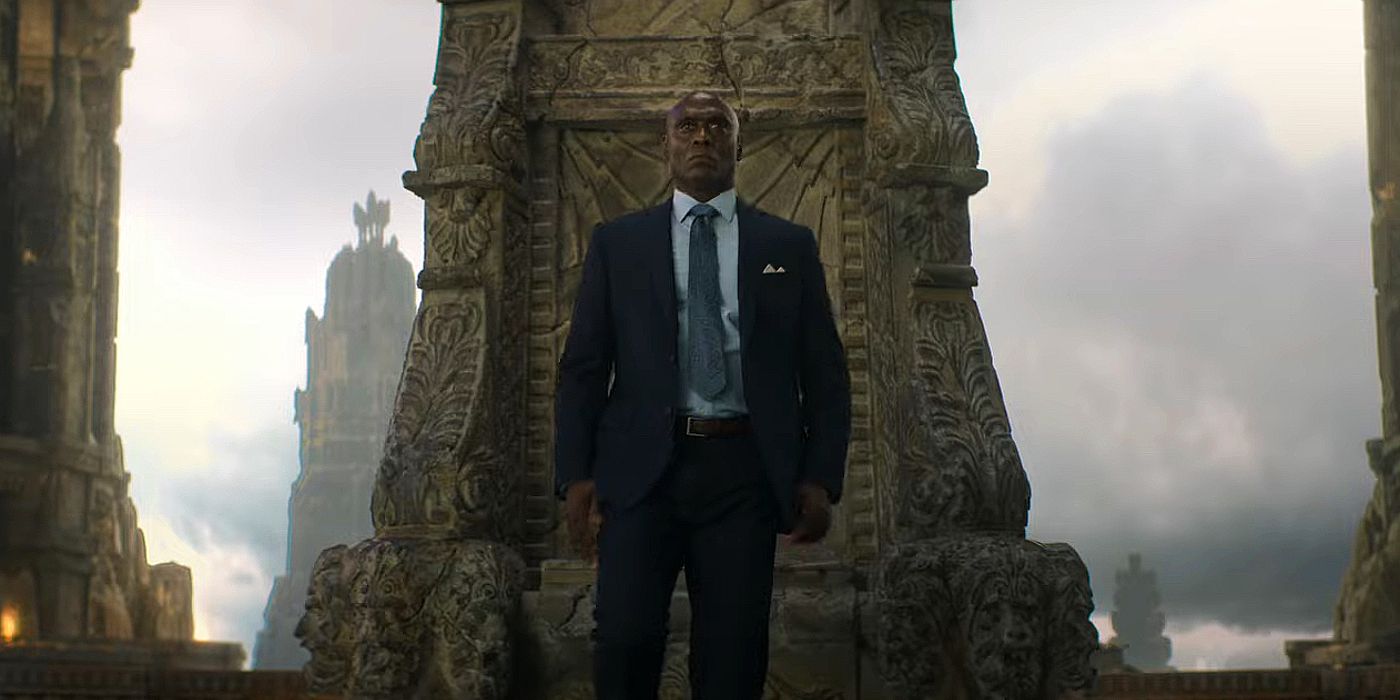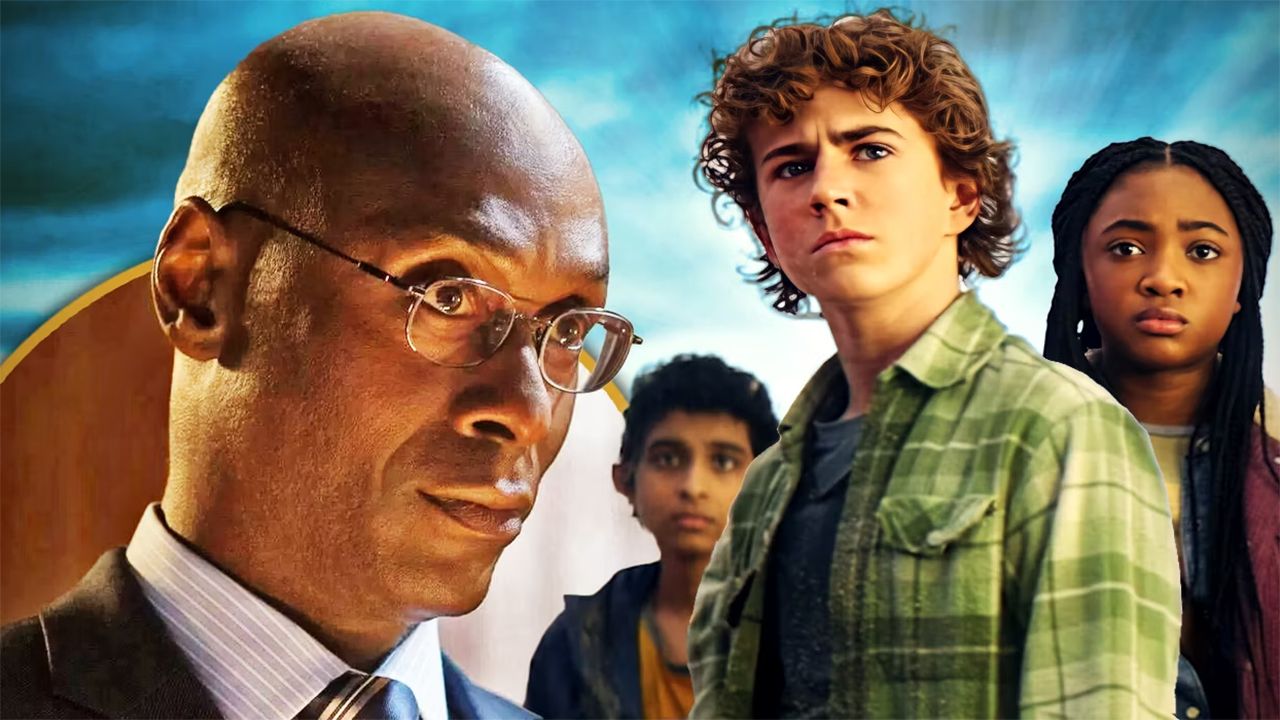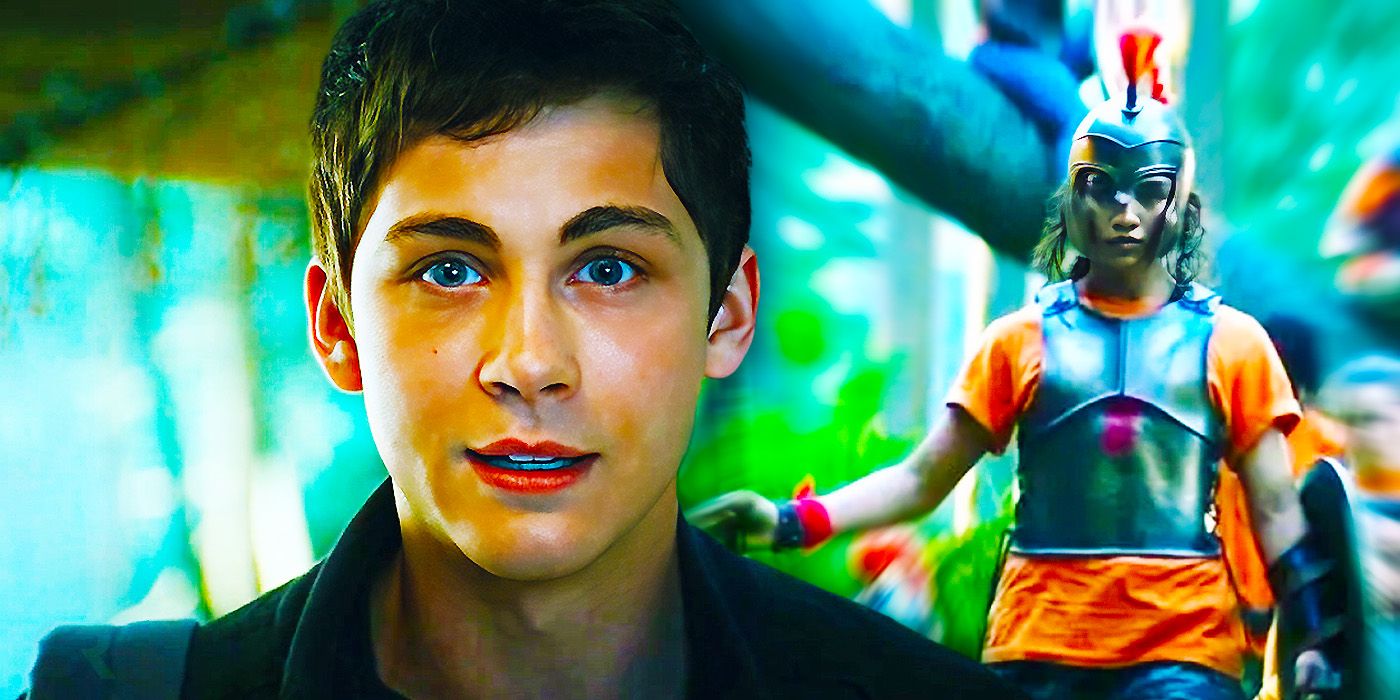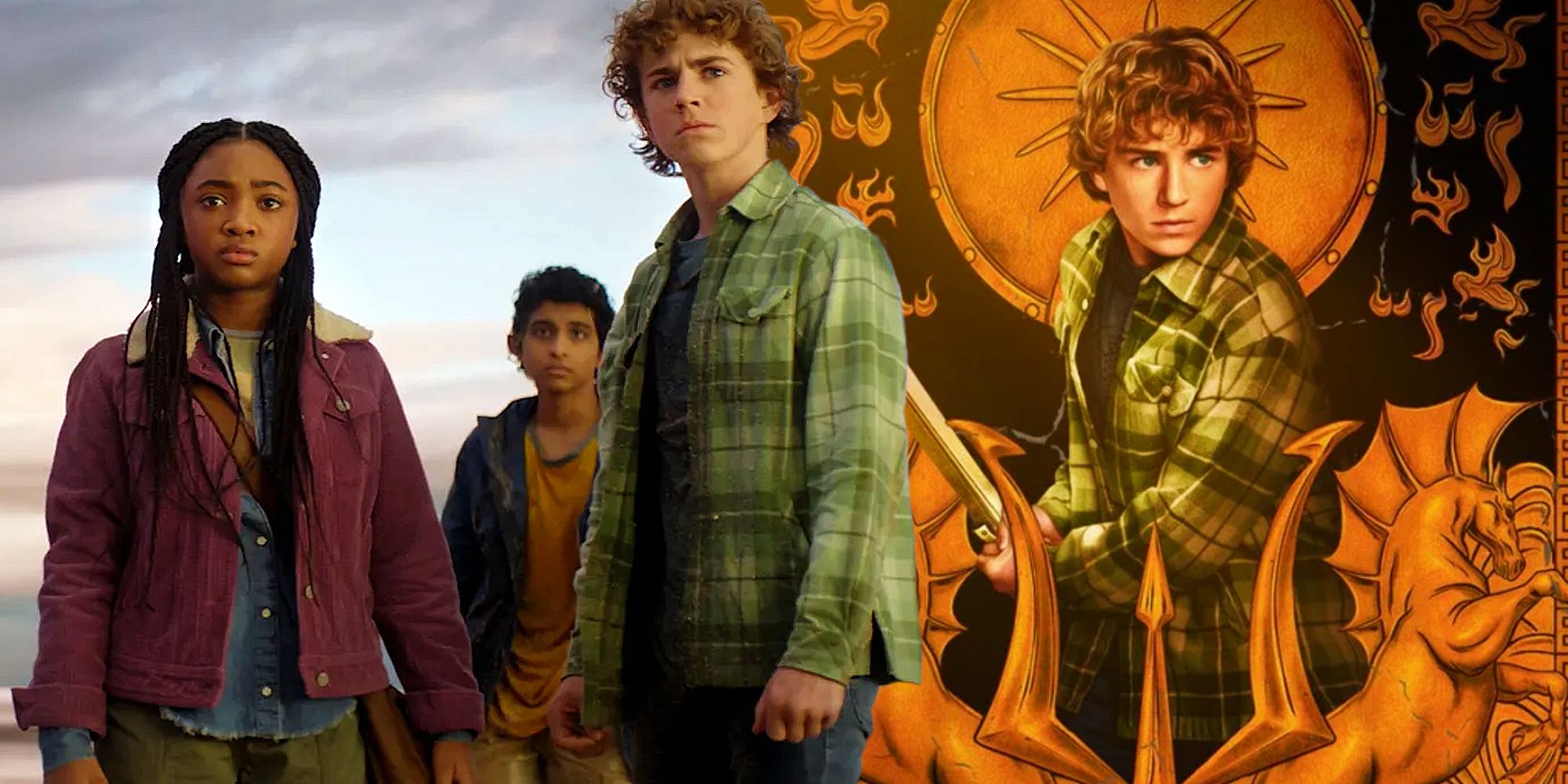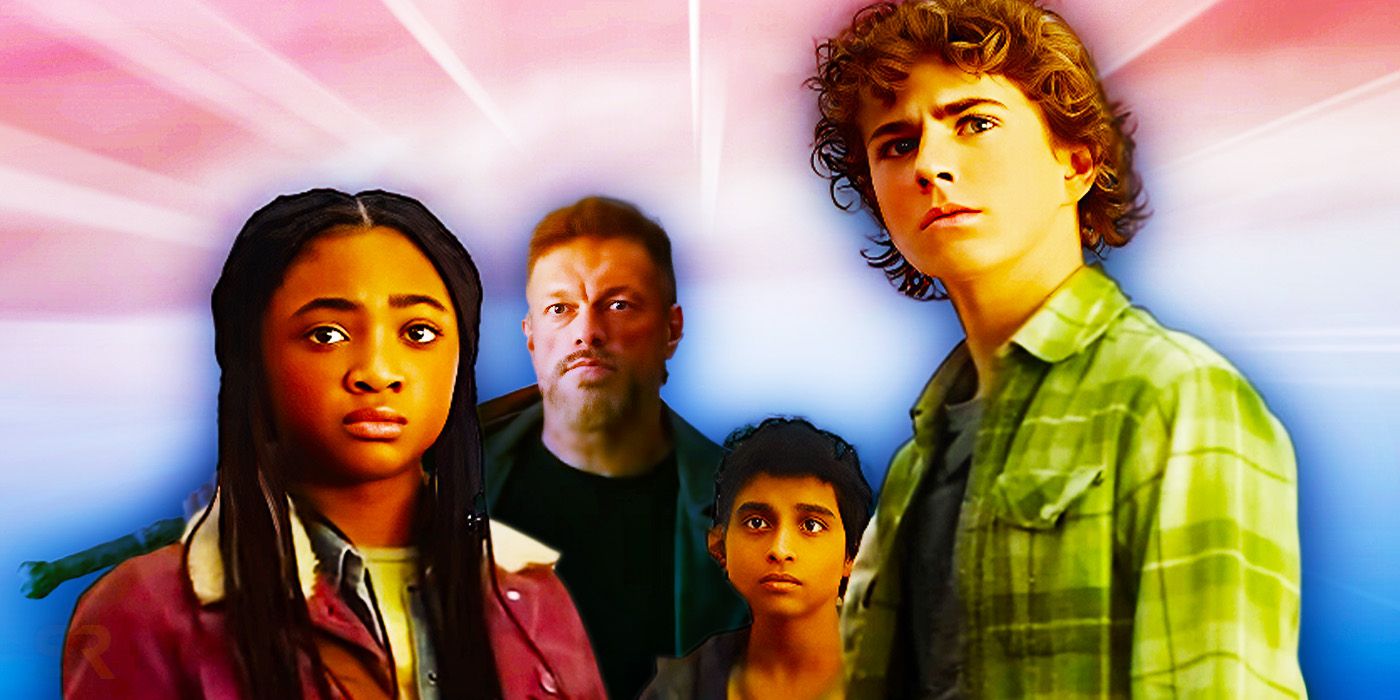
Ares' Percy Jackson Episode 5 Teases Villain Prequel

Ares' appearance in Percy Jackson and the Olympians episode 5 teases a villain story that would be an ideal prequel show, but it can never happen. Percy Jackson and the Olympians episode 5's story reveals include two gods who are new to the series. Firstly, Ares, the God of War, helps the main trio hitch a ride to Las Vegas in exchange for retrieving his shield. Secondly, the Greek god Hephaestus makes a small cameo during Percy and Annabeth's quest at the Waterland amusement park.
The Intriguing Story of Ares in Episode 5
Ares, played by Adam Copeland, is the first Greek god Percy meets since leaving Camp Half-Blood. While his aggressiveness as the God of War creates a clash for the main trio, his importance to the wider lore and the teased main Percy Jackson villain is set up in episode 5. Since Ares was omitted from the Percy Jackson films, his inclusion in the Disney+ series is more exciting as it's in line with the books. Plus, the story he shares helps highlight how crucial his role is to the future of the series.
Ares talking to Annabeth at the diner in Percy Jackson and the Olympians season 1 episode 5
After suggesting that a war between Poseidon and Zeus is inevitable, regardless of whether Zeus' master bolt is returned, Ares tells the story of Kronos, his grandfather. He explains that Kronos ate his 'aunts and uncles.' Ares goes on to share that Zeus made Kronos regurgitate these family members, then 'chopped him into a million pieces' and sent him to a 'bottomless pit.' This story lays the groundwork for the War of the Titans, which ultimately led to the Olympian gods' power over the universe. The family members Ares references are Demeter, Hestia, Hera, Hades, and Poseidon, who Kronos ate to prevent being overthrown by them. The bottomless pit mentioned refers to Tartarus, which has been shown in Percy’s nightmares. Evidently, Kronos' importance to Percy's overall quest - which spans the full five-book Percy Jackson and the Olympians series - could warrant a prequel show for the titan that shows the gods' rise to power.
Kronos in Percy Jackson - Sea of Monsters
Although Kronos' downfall at the hands of the Greek gods directly leads into the events of Percy Jackson and the Olympians, much of the story wouldn't allow for the gods to appear since they're in his stomach for years. Since he swallowed each of his children as they were born after his father Uranus cursed him for rebelling and castrating him, Kronos was unscathed until Zeus became an adult. Not having key figures, like Poseidon, for most of the story could decrease the appeal and probably wouldn't make much sense on the small screen. Granted, the actual battle between the Titans and the Olympians would be compelling and offer space for more Greek mythological figures to appear, like Themis, Prometheus, and the Cyclopes, who all helped on the Olympians' side. However, since the war lasted 10 years, it's unlikely that a prequel centered predominantly centered around battles would be as intriguing or well-paced as Percy Jackson and the Olympians. Much of the primary lore reveals would take place while the gods are still in Kronos' stomach, which wouldn't translate well into the TV format.
Walker Scobell as Percy Jackson holding a shield and Toby Stephens as Poseidon in Percy Jackson & the Olympians
Kronos' Influence and the Show's Parentage Theme
Percy Jackson and the Olympians season 1 Greek god criticisms about their distance from their children and the theme of demigods versus the gods are focal points. Kronos' backstory adds weight to these by exposing how this trend is generations old. This highlights how godly parents are often never fully accepting of their children. Kronos' immediate attempts at killing his children because he feared they would overpower him suggest superiority, honor, and power are a primary goal among the gods. This is shown with Athena’s Percy Jackson episode 4 role when she revokes protection in the Gateway Arch to show Annabeth her disapproval of their sending Medusa’s head to Olympus.
Luke with the winged shoes and Hermes in his mailman uniform in Percy Jackson episode 3
As Percy Jackson and the Olympians depicts, the gods share Kronos' fears of being overpowered by their children. Most notably, in the third book in the series, The Titan's Curse, the gods debate whether Percy should be executed as his fate could result in Olympus' destruction, thus emphasizing how distance is used as a means to curb their fears. Moreover, Luke's father, Hermes, abandoning him affects his destructive and negative feelings about the gods. Ultimately, Ares' story about the King of the Titans, Kronos, introduces the roots of Percy Jackson and the Olympians' theme of poor parentage and how family values come in last to power and influence.
Lance Reddick as Zeus walking in front of his throne in the Percy Jackson TV show
The Future of Percy Jackson and Olympians
Ares' appearance in Percy Jackson and the Olympians episode 5 has set the stage for a deeper exploration of the show's mythology and the characters' relationships with the gods. The teased prequel potential of Kronos' story and the themes of parentage and power offer a rich foundation for future episodes. The series' focus on the complexities of the Olympian gods and their interactions with demigods promises to continue to captivate audiences. New episodes of Percy Jackson and Olympians premiere every Tuesday on Disney+.
Edited image of Lance Reddick and Percy Jackson, Annabeth & Grover from The Olympians series
